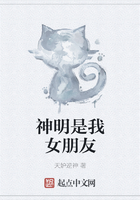DEAR SPEED:--Yours of the 16th June was received only a day or two since. It was not mailed at Louisville till the 25th. You speak of the great time that has elapsed since I wrote you. Let me explain that. Your letter reached here a day or two after I started on the circuit. I was gone five or six weeks, so that I got the letters only a few weeks before Butler started to your country. I thought it scarcely worth while to write you the news which he could and would tell you more in detail. On his return he told me you would write me soon, and so I waited for your letter. As to my having been displeased with your advice, surely you know better than that. I know you do, and therefore will not labor to convince you. True, that subject is painful to me; but it is not your silence, or the silence of all the world, that can make me forget it. I acknowledge the correctness of your advice too; but before I resolve to do the one thing or the other, I must gain my confidence in my own ability to keep my resolves when they are made. In that ability you know I once prided myself as the only or chief gem of my character; that gem I lost--how and where you know too well. I have not yet regained it; and until I do, I cannot trust myself in any matter of much importance. I believe now that had you understood my case at the time as well as I understand yours afterward, by the aid you would have given me I should have sailed through clear, but that does not now afford me sufficient confidence to begin that or the like of that again.
You make a kind acknowledgment of your obligations to me for your present happiness. I am pleased with that acknowledgment. But a thousand times more am I pleased to know that you enjoy a degree of happiness worthy of an acknowledgment. The truth is, I am not sure that there was any merit with me in the part I took in your difficulty; I was drawn to it by a fate. If I would I could not have done less than I did. I always was superstitious; I believe God made me one of the instruments of bringing your Fanny and you together, which union I have no doubt He had fore-ordained.
Whatever He designs He will do for me yet. "Stand still, and see the salvation of the Lord" is my text just now. If, as you say, you have told Fanny all, I should have no objection to her seeing this letter, but for its reference to our friend here: let her seeing it depend upon whether she has ever known anything of my affairs; and if she has not, do not let her.
I do not think I can come to Kentucky this season. I am so poor and make so little headway in the world, that I drop back in a month of idleness as much as I gain in a year's sowing. I should like to visit you again. I should like to see that "sis" of yours that was absent when I was there, though I suppose she would run away again if she were to hear I was coming.
My respects and esteem to all your friends there, and, by your permission, my love to your Fanny.
Ever yours, LINCOLN.
A LETTER FROM THE LOST TOWNSHIPS
Article written by Lincoln for the Sangamon Journal in ridicule of James Shields, who, as State Auditor, had declined to receive State Bank notes in payment of taxes. The above letter purported to come from a poor widow who, though supplied with State Bank paper, could not obtain a receipt for her tax bill. This, and another subsequent letter by Mary Todd, brought about the "Lincoln-Shields Duel."
LOST TOWNSHIPS
August 27, 1842.
DEAR Mr. PRINTER:
I see you printed that long letter I sent you a spell ago. I 'm quite encouraged by it, and can't keep from writing again. I think the printing of my letters will be a good thing all round-- it will give me the benefit of being known by the world, and give the world the advantage of knowing what's going on in the Lost Townships, and give your paper respectability besides. So here comes another. Yesterday afternoon I hurried through cleaning up the dinner dishes and stepped over to neighbor S_______ to see if his wife Peggy was as well as mout be expected, and hear what they called the baby. Well, when I got there and just turned round the corner of his log cabin, there he was, setting on the doorstep reading a newspaper. "How are you, Jeff?" says I. He sorter started when he heard me, for he hadn't seen me before.
"Why," says he, "I 'm mad as the devil, Aunt 'Becca!" "What about?" says I; "ain't its hair the right color? None of that nonsense, Jeff; there ain't an honester woman in the Lost Townships than..."--"Than who?" says he; "what the mischief are you about?" I began to see I was running the wrong trail, and so says I, "Oh! nothing: I guess I was mistaken a little, that's all. But what is it you 're mad about?"
"Why," says he, "I've been tugging ever since harvest, getting out wheat and hauling it to the river to raise State Bank paper enough to pay my tax this year and a little school debt I owe; and now, just as I 've got it, here I open this infernal Extra Register, expecting to find it full of 'Glorious Democratic Victories' and 'High Comb'd Cocks,' when, lo and behold! I find a set of fellows, calling themselves officers of the State, have forbidden the tax collectors, and school commissioners to receive State paper at all; and so here it is dead on my hands. I don't now believe all the plunder I've got will fetch ready cash enough to pay my taxes and that school debt."
I was a good deal thunderstruck myself; for that was the first I had heard of the proclamation, and my old man was pretty much in the same fix with Jeff. We both stood a moment staring at one another without knowing what to say. At last says I, "Mr.
S______ let me look at that paper." He handed it to me, when I read the proclamation over.














